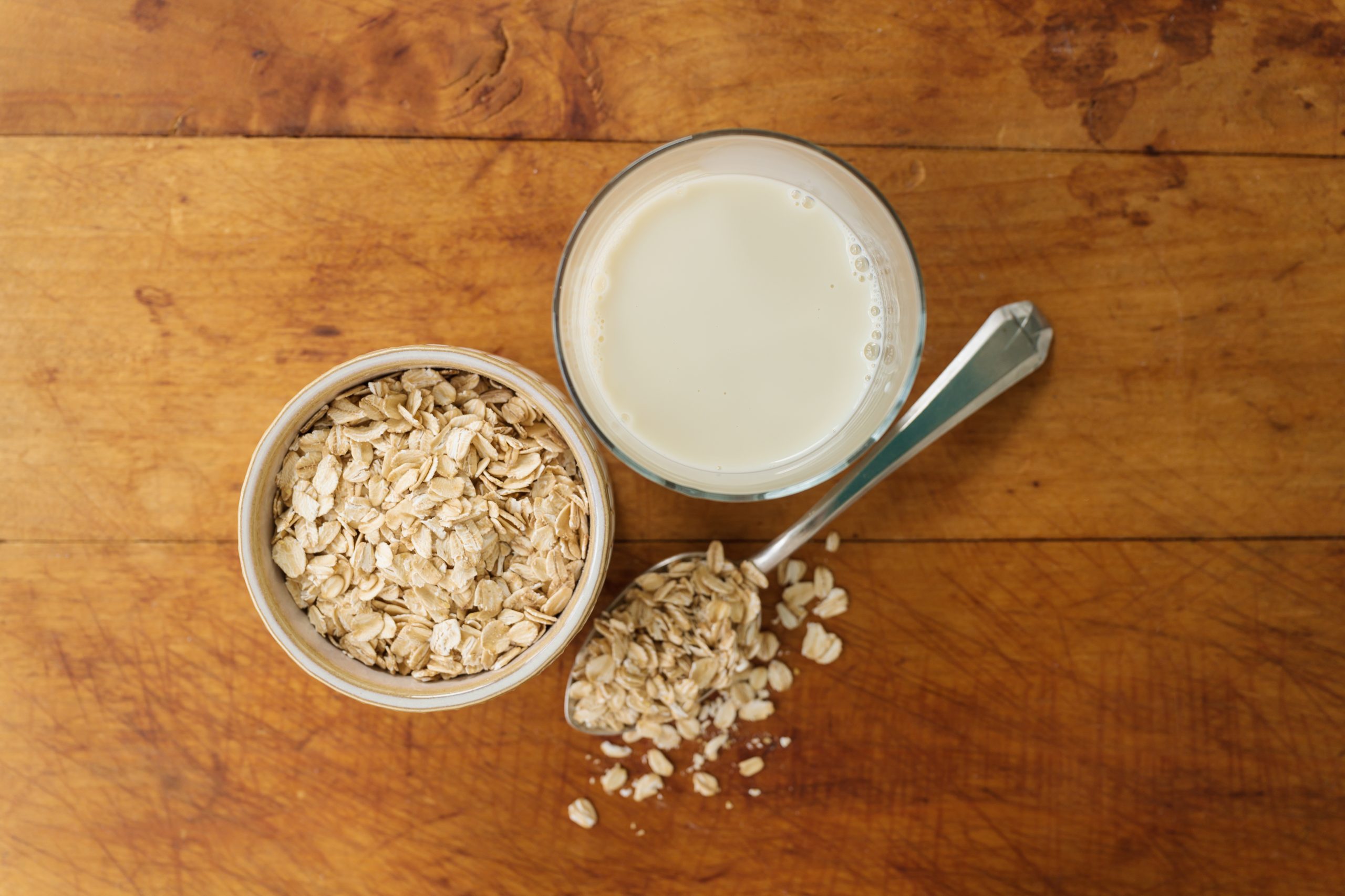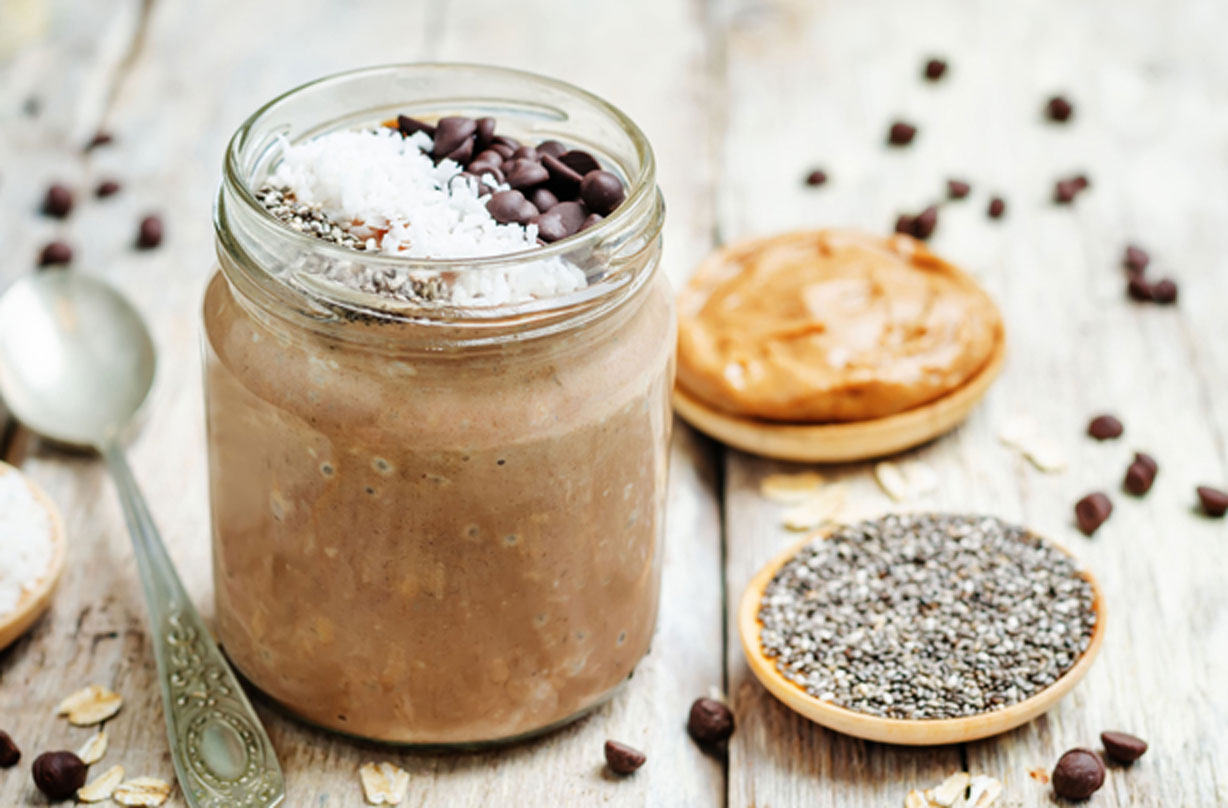9 health benefits of oats: Nutritionists reveals why they are so good for you
They're the perfect way to start your day


Parenting advice, hot topics, best buys and family finance tips delivered straight to your inbox.
You are now subscribed
Your newsletter sign-up was successful
Not only are oats super versatile, they're also incredibly good for you.
Unlike highly refined carbohydrate foods, oats have less impact on blood sugar levels offering a steady supply of energy to help keep you feeling full between meals. Oats are also a good way to get a little more fibre in your diet. In fact, they contain the soluble fibre, beta glucan, which research shows may reduce total and LDL cholesterol by 5 to 10%.
Oats also make for a good post-training snack as they contain a source of carbohydrate to replenish glycogen stores as well as protein to help with muscle repair and growth. Added to this, research by the World Cancer Research fund has shown that there is strong evidence to support the fact that wholegrains decrease the risk of colorectal cancer.
Nutritionist Rob Hobson, told us, 'Oats are a simple wholegrain with a myriad of proven health benefits - including the fact they are surprisingly high in protein. A 40g serving of oats provides 5g of protein. If you combine them with milk or yoghurt then this increases to around 14g,' explains Rob.
In the UK only 4% of women and 11% of men meet the recommended 30g per day,' reveals Rob who also adds that oats are a good source of iron; a mineral lacking in many women’s diets causing tiredness and fatigue. 'An oat based breakfast followed by an oat based snack bar or smoothie across the day can help you to reach 3g per day.'
Health benefits of oats
1. High in protein
'Oats are surprisingly high in protein, containing around 10.9g per 100g,' says Holland & Barrett nutritionist, Emily Rollason. 'Whilst oats do contain all of the essential amino acids (building blocks of protein that we are required to obtain from the diet), they don’t quite contain enough lysine to be classed as a ‘complete’ protein. In order to increase your chances of getting all of the essential amino acids when eating oats, try adding some seeds or nuts to boost your amino acid intake.'
If you follow a vegetarian or vegan diet, or don't eat animal foods, oats could be a great addition to your diet as they will help you hit your recommended daily protein intake. Registered Dietitian Juliette Kellow explains that you can also increase the protein content of a bowl of porridge by adding milk or fat free yogurt. Ensuring a diet with plenty of protein is helpful to look after muscles and tissues. In fact, there are plenty of high protein recipes to ensure you're getting enough of this essential macronutrient.
Parenting advice, hot topics, best buys and family finance tips delivered straight to your inbox.
2. Support digestion
Oats are high in fibre and contain both soluble and insoluble which impacts the body positively. This can also make oats good for weight loss. 'The soluble fibre forms a gel in your gut, slowing digestion and making us feel full. Soluble fibre is called slows down digestion whereas insoluble fibre can add bulk to stools and aid with getting things moving through the digestive system normally,' explains Emily.
Plus, oats are rich in a type of fibre called beta glucan, a soluble fibre which has many healthy effects on the body. Juliette told us, 'Beta glucan helps lower cholesterol. It forms a gel and slows down the absorption of sugar into the blood, so that's why they say porridge provides slow, steady release of energy. You don't get the sharp drop in energy after either, as you would with sugary foods. Essentially, oats help even out blood sugar levels which is important to help prevent hunger.'

3. Lower cholesterol
Ready for some science? Emily reveals that beta glucan in the oats bind with water to form a gelatinous substance which forms a layer in the digestive tract, particularly in the small intestine and is thought to bind to lipids. This inhibits the absorption of the cholesterol in the small intestine, decreasing LDL and reducing cholesterol.'This fibre helps to reduce cholesterol, which also reduces the risk of developing a heart problem,' she adds.
4. Source of slow releasing energy
If you need something to power you through the whole morning, look no further than oats and a hearty bowl of porridge.
'Whole oats are a complex carbohydrate. The body requires carbohydrates to convert into glucose as a source of energy. Complex carbohydrates are long molecules that take longer to digest in comparison to simple carbohydrates, meaning a much more sustained release of this energy,' says Emily.
'This makes it a great food to have early in the morning!' Be careful when buying porridge sachets however. There are a few brands out there that have lots of sugar in their recipes.
5. Help to fuel a workout
Nutritionist Cassandra Barnes add that these slow-releasing carbohydrates in oats are fantastic for powering a workout or for restoring muscles after training. 'The magnesium in them is vital for muscle function too.' Try chopped banana on a couple of Nairn's Oatcakes before a workout for an energy boosting snack!
6. Full of important minerals and vitamins
Emily reveals that oats contain a range of many important vitamins and minerals that the body needs. 'This includes vitamin B1 as well as minerals such as manganese, selenium and zinc. They also contain magnesium which is essential for transporting energy around the body and promoting normal muscle function.'
7. Oats are gluten free
Can't eat gluten? Add oats to your diet. Emily tells us that oats are naturally gluten-free. However they do contain avenin, a protein similar to gluten.
'It’s important to check with the manufacturer as most oats are processed and packaged in environments which also produce other grains which do contain gluten such as wheat. A small fraction of people may not be able to tolerate even gluten free oats, so if you have coeliac disease, it’s important to check with your healthcare professional if you are looking to include oats, so you can monitor symptoms.'
8. Oats for weight loss
Emily explains: 'Oats are low in calories. Oats are also a good source of fibre. Because of this they may help you to feel fuller for longer, which can reduce your appetite and stop you from overeating. Replacing a higher calorie meal based around simple carbohydrates (such as sugary cereals or white bread and jam) at breakfast time, with a bowl of oats may aid with promoting satiety and reduce your caloric intake!' There are also plenty of other high fibre foods that can help with weight loss.
9. Protect the skin
Oats can protect your skin too! Surprising, no? 'A lot of creams and lotions contain oats in certain forms due to its antioxidant properties. Oats have often been used to prevent dry skin and relieve itchiness and irritation. It also creates a barrier and allows the skin to hold moisture, softening and hydrating the skin,' says Emily.
What are the benefits of oat milk instead of dairy milk?
Plant based milks, such as oat milk, have risen in popularity over recent years. But are there benefits to drinking oat milk instead of dairy milk?
'Oat milk does contain healthy beta glucan fibre which lowers cholesterol and helps keep our blood sugar levels stable,' says Juliette. This can help us avoid sugar crashes, and give us a nice slow release of energy. Calorie-wise, oat milk is on a par with semi-skimmed milk, however it's lower in calories than full fat dairy milk.
Juliette recommends that you look for the oat milks that are fortified with calcium, as dairy is one of the main calcium sources in our diet.'If you use oat milk as you're following a vegan diet, make sure it's fortified with vitamin b12 as well. Oat milk can vary in nutrition dependent on the brand, so do check labels to see what's in your oat milk. Look out for any fortified in vitamin D too!'
As well as this, opt for unsweetened oat milk to ensure that you are not taking in more sugar than your realise when making a cup of tea or eating cereal. (This applies to any plant-based or non-dairy milk substitute).

Rob Hobson is an award-winning registered nutritionist, with more than 15 years experience. Accredited by the AFN and SENR, he also has degrees in nutrition, public health nutrition and sports nutrition. Rob is a published author of three successful books, Unprocess Your Life, The Detox Kitchen Bible and The Art of Sleeping. He has acted as Head of Nutrition at Healthspan since 2013.

Freelance writer Lucy Gornall is the former health and fitness editor for various women’s magazines including Woman&Home Feel Good You. She has previously written for titles including Now, Look and Cosmopolitan, Woman, Woman's Own, Woman's Weekly and Chat. She lives and breathes all things fitness.